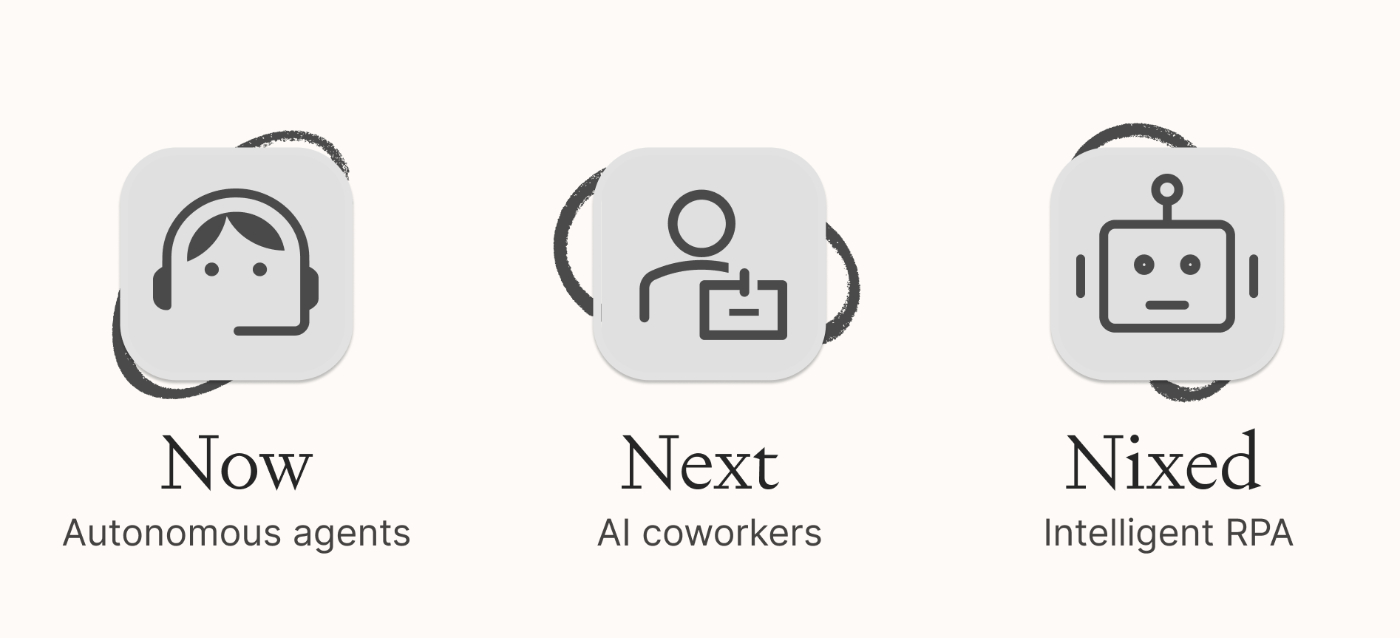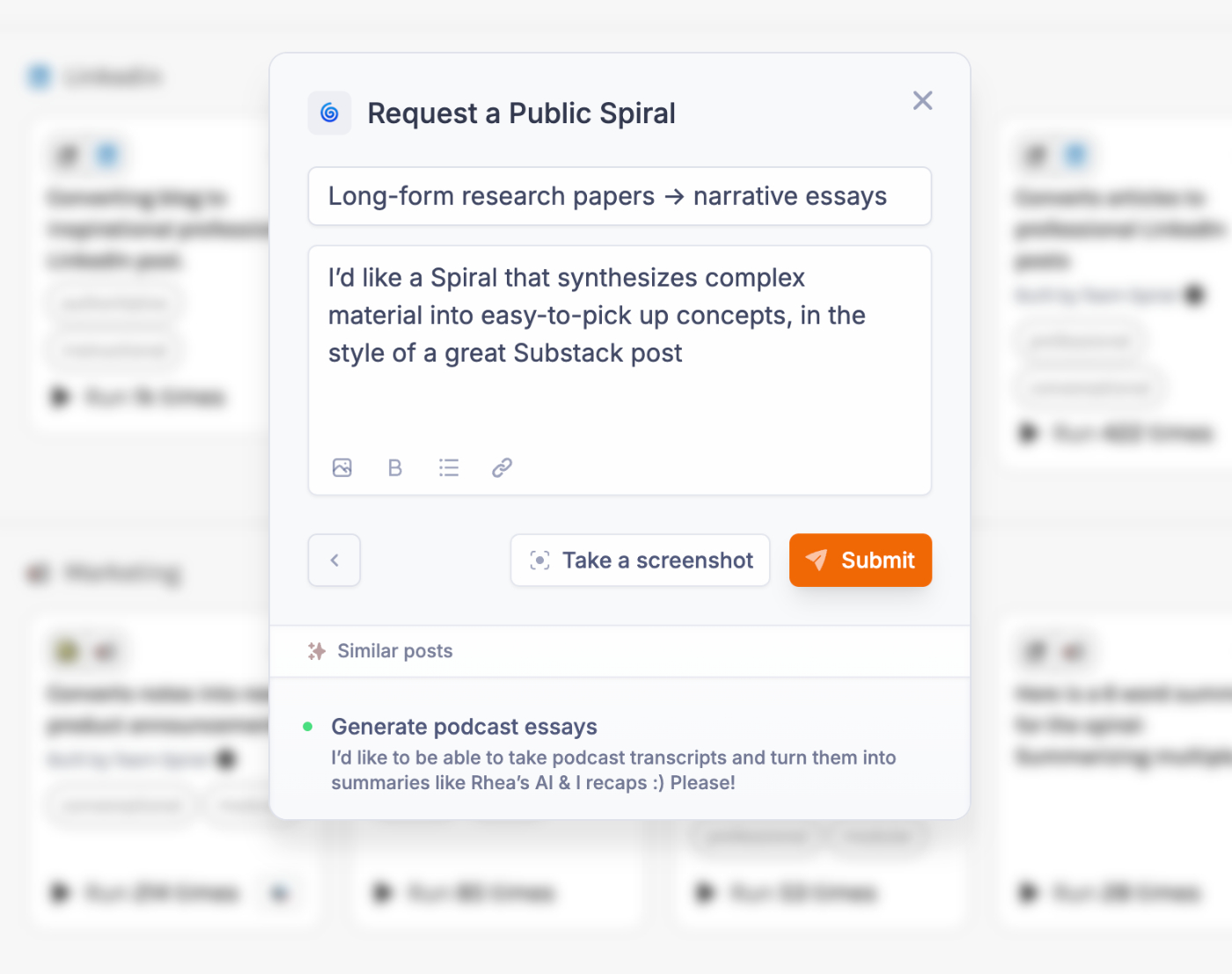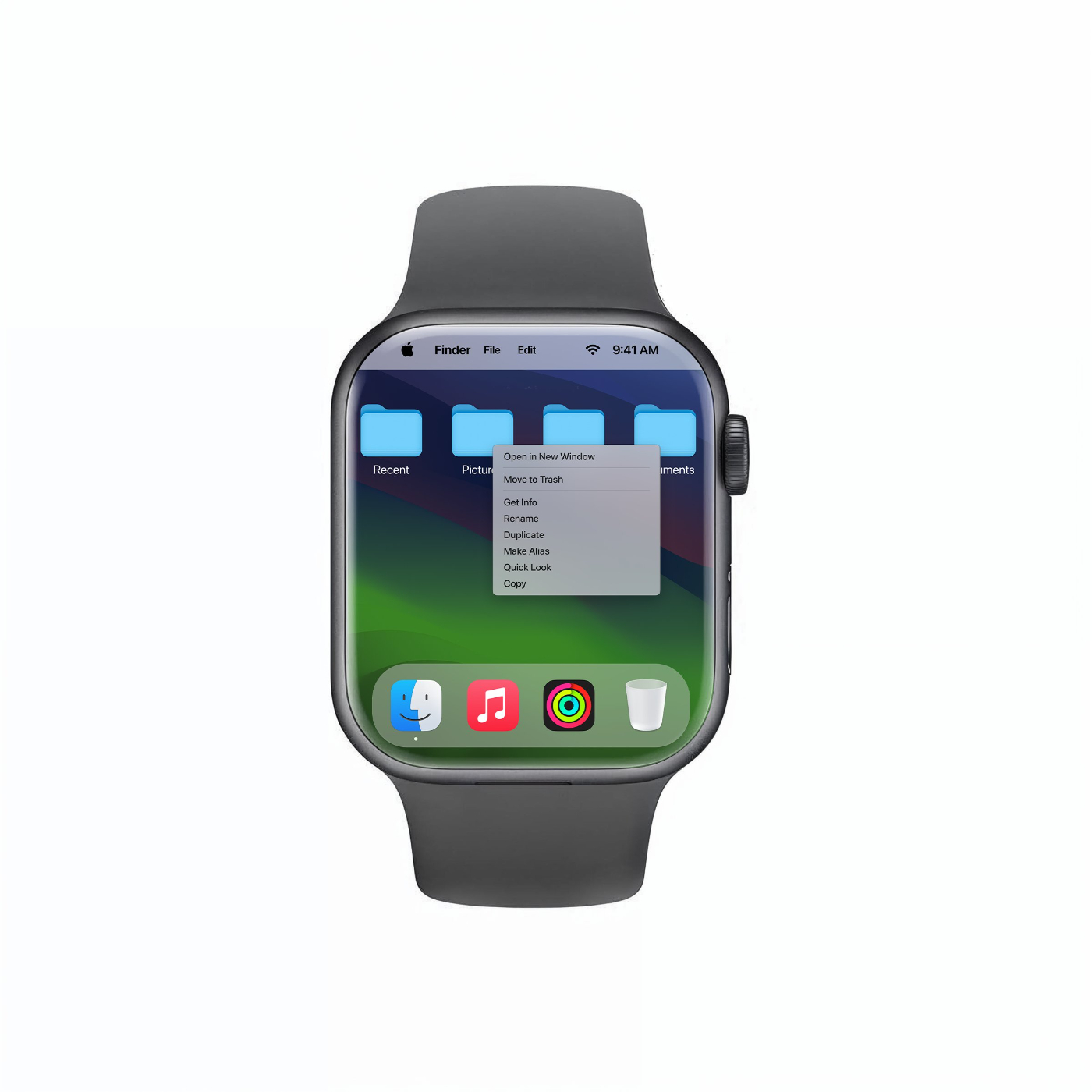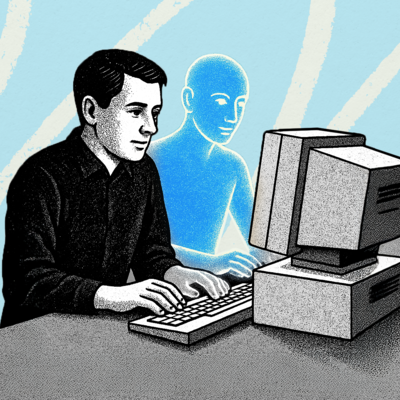
Hello, and happy Sunday! Silicon Valley came to Washington to announce a $500 billion funding effort aimed at boosting AI infrastructure in the United States. Alex Duffy explores what we know—and what we don’t know—about the initiative known as “Stargate.” Then, check out everything we published this week at Every.
ICYMI: The next cohort of our course How to Write With AI, taught by Evan Armstrong, starts on February 13. You’ll learn how to fashion expert prose and get your writing to resonate with your intended audience while harnessing the latest AI technology. Head to the course website to learn more and sign up.—Kate Lee
Release notes
Stargate, unicorns, and autonomous agents
This week, the Trump White House announced a $500 billion private sector AI infrastructure investment called the Stargate Project. Funded by SoftBank, OpenAI, Oracle, and the Emirati investment firm MGX, the project counts Microsoft, Nvidia, and British semiconductor company Arm as partners. Its goal: improve AI infrastructure in the United States.
Company executives, many of whom gathered at the White House to announce the deal on January 21, said they will invest this money over the next four years with an initial sum of $100 billion, which is already being used to build the first of 10 500,000-square-foot data centers.
While $500 billion is a staggering sum, the money comes from private firms, not taxpayers. And it’s not all new: Some of the companies, such as Microsoft, had already committed funds toward building out AI infrastructure. Now it’s under the Project Stargate umbrella, getting a presidential endorsement as a driver of AI innovation in the country. It is also unclear exactly what the funds will be used for, and critics—including Elon Musk—have publicly questioned whether the number is, in fact, exaggerated. However, two things so far are certain:
1. The Stargate Project will advance the development and adoption of AI in the United States.
2. Despite what Elon Musk claims, Microsoft CEO Satya Nadella says the company is good for its $80 billion investment.
This announcement came at a critical moment, as AI gains mainstream adoption and rapidly improves. Meta’s Mark Zuckerberg recently boasted that the company will roll out AI agents capable of acting as mid-level engineers later this year, while three days ago OpenAI launched its agent Operator, which promises to accomplish online tasks for users autonomously. There’s an unmet market need for helpful AI agents. Devin, a much-hyped $500-per-month “collaborative AI teammate,” often falls short, failing 70 percent of real world tasks in one test. But even the CEO of Anthropic, Dario Amodei, who is relatively reserved and hype-averse, believes AI that's ”better at most things than most people” is coming in the next two to three years.
Many people will benefit from these improving models and tools. For individuals, a recent survey conducted by newsletter writer Lenny Rachitsky revealed that the most widely adopted tool across 6,500 tech professionals was not Slack or Gmail, but ChatGPT. For industry, companies across the board are beginning to implement agents that are helping their employees improve the effectiveness and efficiency of problems such as customer support, reviewing contracts, or equity research.
But in order to keep training and running the top AI models, developers need better infrastructure—namely, chips and data centers. In that way, Project Stargate should push forward AI development in the U.S., at a time when competition from China is, for the first time, staring us in the face.
On January 20, a Chinese company called DeepSeek released its open-source R1 model. This model caused quite a stir because it is a language model about as good as OpenAI's flagship model o1 while sporting a price tag 30 times cheaper, and was trained by a much leaner team possibly without access to top-of-the-line chips. While impressive, R1 specializes in deep reasoning rather than quick answers. Still, R1 shows that despite the U.S. government’s best efforts to cut off China from high-powered chips, the country is still finding ways to forge ahead with cutting-edge AI development. And for developers anywhere relying on language models for hard problems, switching to R1 today could save money and improve the quality of responses.
In the U.S., Google announced the latest update to its “thinking” model, debuting at number 1 in the Chatbot Arena, a website dedicated to comparing and testing the best AI chatbots. These new “thinking models” from Google, OpenAI, and now DeepSeek break from the trend of needing bigger models for better responses. Instead, they take longer to generate an answer, but the additional reflection improves the quality of the response. However, the size of major AI systems has doubled every six months for 15 years‚—and that was before another $500 billion was invested with Project Stargate. Better and bigger at the same time compound to exponential progress with opportunities to capitalize aplenty.
Clay is another company using AI tools internally to solve real problems by providing data useful for marketing and sales teams. This week, Clay (which Evan profiled last summer) raised $40 million, more than doubling last year's valuation from $500 million to $1.3 billion. Also this week, legal AI startup Harvey is reportedly set to double its valuation to $3 billion, and AI code editor Cursor raised a $150 million Series B funding round to try and automate code.
A $500 billion infrastructure investment, a breakthrough open-source model, and billion-dollar valuations for AI-first companies—it's tempting to call this a watershed moment for AI. But perhaps that misses the point. It is not about individual breakthroughs anymore. It’s about the steady drumbeat of progress across every front: infrastructure, models, applications, and adoption. The foundation for the future is being built.—Alex Duffy
At Every, we’re supporting partners with AI training and implementations. If your team is working on an AI strategy for 2025 and would like to collaborate, reach out to [email protected].
Now, next, nixed
The current state of workflow automation: from assigning repetitive tasks to executing on complex pipelines to independent decision-making.
Source: Every illustration.Knowledge base
“We Tried OpenAI’s New Agent—Here’s What We Found” by Dan Shipper and Alex Duffy/Chain of Thought: OpenAI just dropped Operator, its new autonomous agent that's like having your own digital assistant. We got early access and put it through its paces. The good? It can compress 20-minute tasks into automated workflows you can save and reuse. The not-so-good? It's locked out of many sites (sorry, Reddit fans) and works better as a Taskrabbit than as a research assistant. Read this for a sneak peek on what could be the next ChatGPT-level breakthrough in consumer AI.
"Why Is Jensen Huang $120 Billion Richer Than You?" by Evan Armstrong/Napkin Math: Nvidia's rise to $3.45 trillion wasn't just about cofounder Jensen Huang's grit. In his new book The Nvidia Way, Tae Kim details Huang’s journey from reform school to running the world's most valuable chip company. But there’s more to it: radical optimism, a cult-like work culture (employees dread when Jensen goes on vacation—he works even more), and the patience to lose money for years on bets that seemed crazy at the time. Read this to understand how Silicon Valley's most valuable company was built on much more than just making good chips.
"How to Become Indistractable in 2025" by Scott Nover/Superorganizers: We caught up with the distraction expert Nir Eyal to see if his famous four-step method for focused productivity still holds up. Five years after he published Indistractable, the psychology behind the book hasn't changed, but the tools (and challenges) certainly have. Nir shares his experiences with AI productivity tools and paints an intriguing picture of our future relationship with AI—less Her and more Pinocchio's Jiminy Cricket. Read this if you’re looking for practical insights on staying focused in 2025.
🎧 “The Venture Capitalist Who Finds the Best AI Products—Before They Win” by Dan Shipper/AI & I: Spark Capital's Nabeel Hyatt has a knack for spotting the next big thing in tech (Discord, Cruise, Descript, Granola) by looking for products that, like Japanese toilets, delight users with experiences they didn't know they wanted. In this episode of AI & I, Nabeel breaks down his selective approach to investing and shares how he's actually using AI for fun. Watch or listen to learn how one of tech's most successful investors spots winners before anyone else. 🎧🖥 Watch on X or YouTube, or listen on Spotify or Apple Podcasts.—Aleena Vigoda
From Every Studio
What we shipped this week
A new Cora feature—and a “how-to” demo: Watch Kieran Klassen, general manager of our re-imagined email product Cora, ship a feature request—clicking links in your Cora brief to open them in a new tab—in 20 minutes with Cursor. During his walkthrough, Kieran demonstrated how he uses Cursor’s features to make life and work easier for himself by pair programming with AI-assisted code and using voice prompts instead of text chat. Leave feedback or request a Cora feature, and follow along with product updates on our changelog. It’s a product that Andy Weissman of Union Square Ventures told us had him “bordering on delighted.”
Read podcasts with Spiral: Would you like to be able to distill your favorite podcasts like Rhea Purohit does for AI & I? If so, you’re in luck. We turned her podcast essay template into a public Spiral. Spiral helps you automate repetitive writing tasks and transform your creative work across mediums. You can run public Spirals created by other people or by the Every team to remix the content you create and consume. If you prefer to read instead of listen, copy and paste a podcast transcript you’ve been dying to learn from into this Spiral to spin up an essay. You can also browse through trending Spirals or request we make a new public Spiral.—AV
Source: Every.
Alignment
Bots all the way down. Have you seen that YouTube video of the skier and the arctic fox? Millions of views. Millions of comments. All suspiciously generic. That’s because no actual human with a job and a life is taking time to comment, "Wow, nature is amazing!" on obvious AI slop. It's bots talking to bots. I can't prove it, but come on—we know. The so-called “dead internet” theory, which says that the web is mostly filled with bots talking to other bots, was once a fringe idea but may be our reality in the age of generative AI. Every time I scroll through these manufactured interactions on social media, I remind myself why we desperately need proof of personhood online. I want humans. Real ones. With weird opinions and typos and grammar police correcting them. And maybe that's why annoying little Captchas might be the last line of defense against the bot apocalypse—if the bots haven’t all figured out how to solve Captchas, that is.—Ashwin Sharma
Hallucination
What if you could run MacOS from your watch?
Source: X/Lucas Crespo.That’s all for this week! Be sure to follow Every on X at @every and on LinkedIn.
We also build AI tools for readers like you. Automate repeat writing with Spiral. Organize files automatically with Sparkle. Write something great with Lex. Deliver yourself from email with Cora.
Get paid for sharing Every with your friends. Join our referral program.
The Only Subscription
You Need to
Stay at the
Edge of AI
The essential toolkit for those shaping the future
"This might be the best value you
can get from an AI subscription."
- Jay S.
Join 100,000+ leaders, builders, and innovators

Email address
Already have an account? Sign in
What is included in a subscription?
Daily insights from AI pioneers + early access to powerful AI tools









.png)

.png)
Comments
Don't have an account? Sign up!